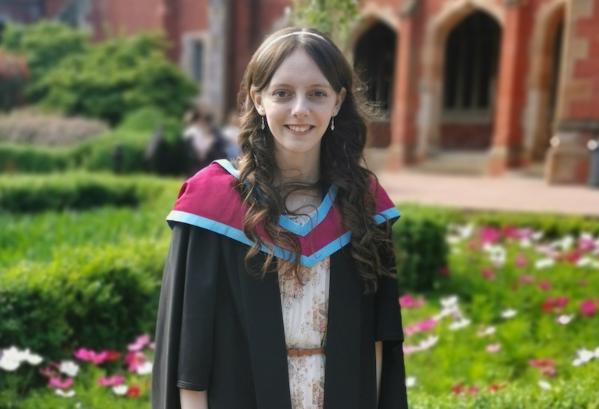Why it’s a myth that PhD students don’t have time for a social life
Laura Kinkead speaks about the importance of a healthy work/life balance for PhD students and gives tips on how to make friends as a postgraduate.

I’m a first year PhD student with the School of Social Sciences, Education and Social Work at Queen’s.
I’ve written this blog to dispel some of the myths around socialising while studying for a PhD – mainly the myth that you can’t have a social life if you’re a PhD.
So, if you’re an incoming PhD student worrying about how to have fun, don’t worry. There are plenty of opportunities to socialise, you just have to find out how!
Can you have a social life while studying for a PhD?
This is a question that a lot of prospective students worry about when it comes to pursuing a PhD.
There’s a widely held belief that PhD students can’t do or think about anything other than work and that it’s a 24-hour job! I can tell you this is not true – working 24/7 certainly isn’t healthy for your own well-being.
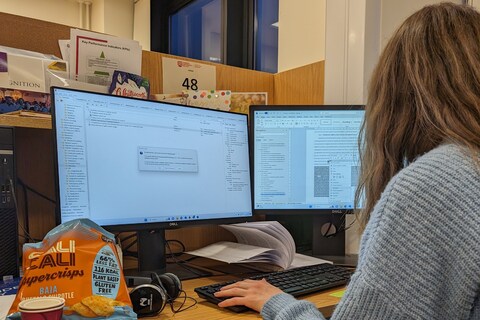
The PhD Application Process at Queen’s
How many hours do PhD students need to study?
A full-time PhD is similar to that of an average 9-5 job, and you’ll spend around 35 hours per week studying. A part-time PhD student will spend around 17.5 hours a week studying.
Whether your studies are full-time or part-time, it’s important to factor in time for relaxation.
Peer pressure, extreme expectations and the demands from your PhD programme can make you feel like you have to put in lots of hours. But over-exerting yourself won’t lead to productivity.
An important thing to remember - and something that I’ve been guilty of forgetting - is that you have a life outside your “work” and your PhD cannot take over everything. If you work too hard, you’ll miss opportunities to meet new people and make memories.
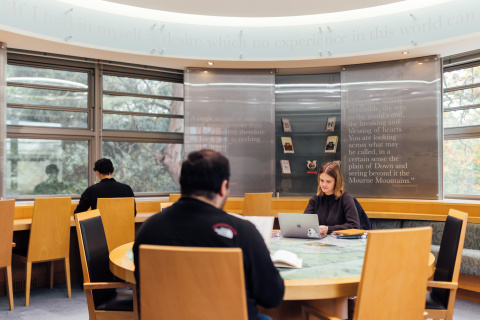
Why Study A PhD at Queen’s University Belfast
How can I socialise while studying for a PhD?
There are lots of different ways you can meet people and spend time with friends.
1. Meet friends from your school
In your school you’ll be surrounded with peers, often in a shared office space. They’ll all be at different stages of their PhD but can offer lots of advice about work or general university life.
I’m a great believer in social learning theory, where we develop new skills and gain knowledge from peers and not just from lecturers.
Sharing knowledge within a group helps you develop a relationship with your peers and is great for your work ethic on days when studying feels like a chore. You’re all in the same boat and they can completely empathise how you are feeling.
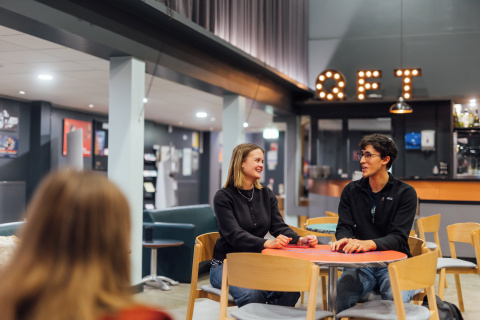
How to Make Friends at University
Many Schools offer coffee afternoons between PhD students and academics – you can go along to these to take a break, talk about any concerns you have and chat about life in general.
2. The Students' Union is for everyone
It is a misconception that the services offered by the Students' Union are only for undergraduate students. This is far from the truth.
The Students' Union is there for everyone. You’ll meet several SU officers who represent postgraduate students. These students understand the diverse challenges and experiences faced by the postgraduate community.
As a PhD student, you still have access to all the clubs and societies so you can meet people around the University who share the same interests as you!
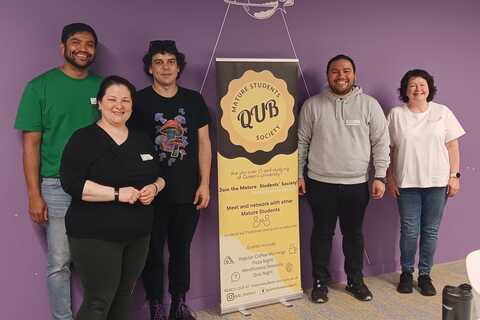
Check out our Clubs and Societies blogs
3. Use social media to boost your network
You aren’t restricted to this traditional approach of socialising.
I’ve found a great network through social media, particularly on Twitter. I created a professional twitter account (@l_kinkead) around 2 years ago. I’ve developed great relationships with peers in my field from all around the world by using hashtags and sharing articles of interest.
Thanks to Twitter, my network includes people from the USA, France, Northern Ireland, Republic of Ireland and Australia.
Social media not only allows you to meet new people, it can also help your studies and introduce you to new research and practices from different countries.

A Guide to Networking Professionally with Queen’s University Belfast on LinkedIn
Studying a PhD can be stressful – make time for your social life!
Networking is an important aspect of your PhD studies, not only will it help spark new ideas but you’ll meet people who can empathise with you.
Studying for a PhD can be stressful, so it’s important to maintain a healthy work/life balance. No matter which School you are part of, there are always opportunities for you to socialise, either with students from your own faculty or other departments.
Find out more
The Thomas J Moran Graduate School
The Right Time, the Right Project: Starting My PhD Journey at Queen’s
